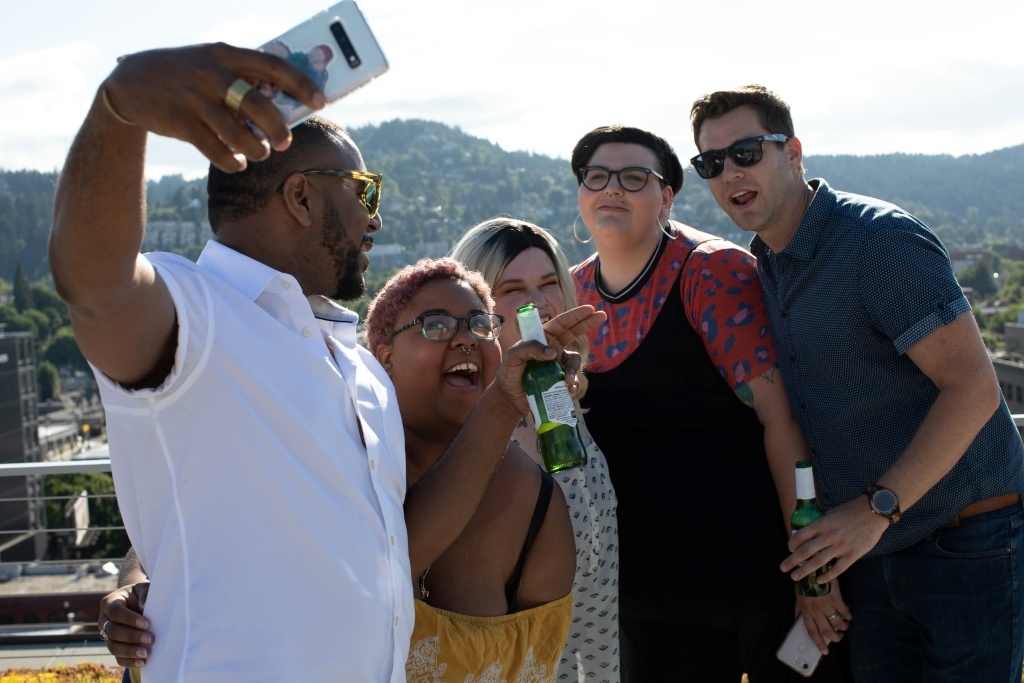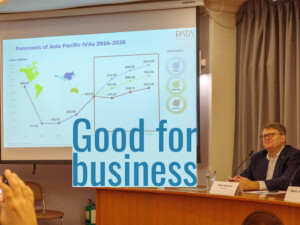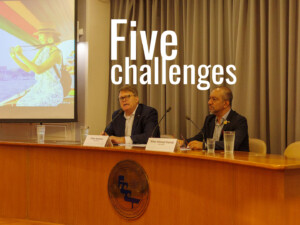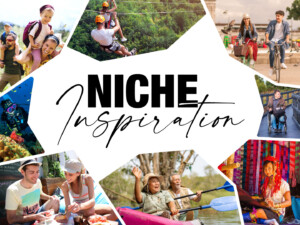Prioritising well-being in travel & tourism

Partner Message by Paul Rogers of “GT” Insight Partner Planet Happiness:
As tourism stakeholders, if we truly value and believe in this life-changing industry, if we want to advocate its merits and ability to deliver the UN SDGs, we need to recognise the imperative to value and measure travel and tourism’s contribution to destination well-being.
Travel and tourism are inextricably linked to national and global development, affecting change almost everywhere. Following the devastating impacts of COVID-19 including the industry’s loss of some 62 million jobs worldwide there is mounting pressure to recover; to reposition and prioritise the industry in the minds of all stakeholders. This implies a repositioning, a move to evolve the sector and engage the broadest possible alliance, committed to strengthening the industry’s ability to deliver the UN SDGs. From a destination perspective, three issues must be addressed, notably: tourism governance, over-crowding and the sector’s carbon footprint.
A Need For Change
A systemic structural weakness with destination development has been its lack of inclusivity and tendency, over time, to prioritise business and government interests over the needs and concerns of host communities. Moreover, economic objectives associated with travel and tourism growth can undermine the quality of life (QoL) of host communities. Prior to COVID-19, this structural imbalance led to destination over-crowding, which coupled with the sector’s carbon footprint are two of the sector’s biggest sustainability threats.
What Can Be Done?
From a technical position these threats can be addressed if destinations and businesses commit to sector sustainability standards and criteria (such as those advocated by GSTC), and carbon footprint registry and reduction protocols (as advocated by SUNx and Tourism Declares). While businesses and governments are starting to engage in this complex arena, they can be incentivised to move at pace if they are driven by evidence-based public opinion centred upon QoL issues and metrics. As households, communities and economies recover from COVID-19, a concerted global partnership is needed to:
- engage and drive public interest in the well-being agenda, QoL metrics and the proposition of regenerative, flourishing destinations, and
- incentivise businesses and governments to embrace destination well-being in their policy and planning frameworks.
The Well-being Pragmatic Shift
Interest in well-being policy and practice is growing on multiple levels, from the individual to the state. Progress is underpinned by the 2011 UN Resolution 65/309 “Happiness: towards a holistic approach to development” and ten years’ of the UN’s annual Global Happiness Reports. Interest is intensifying as individuals and governments contemplate economic restructuring owing to COVID-19. Significantly, the well-being agenda aligns with the UN SDGs; and, the inclusion of QoL science, measures and indicators in destination planning, provides a framework and narrative to:
- engage an industry-wide spectrum of stakeholders,
- embrace well-being scores in destination competitiveness reporting, and
- for travel and tourism to play a defining role in COVID-19 recovery.
While individual and community (destination) well-being can be scientifically measured, how can the well-being agenda itself be positioned to support travel and tourism’s recovery? Perhaps the biggest revolution in travel and tourism data science over the last five years, has been real-time often demand side data collated from social media, on-line booking platforms and other personal mobile device-related data. These innovations feed especially National Tourism Organisations, Destination Management Organisations, and big business. Focusing upon visitor experiences, they often support, for example, niche-marketing, transport planning and opportunities for product development and business growth. In brief, they further empower business and government and, if not well managed, can add to the vulnerability of host communities, which in-turn undermines inclusive destination development.
The Value of Quality-of-Life Data
To promote more inclusive, evidence-based approaches to responsible development and regenerative growth, tourism governance requires access to more holistic data, providing 360-degree insights into not just visitor and industry data, but also the social, environmental and health conditions, sentiments and aspirations of host communities. Through objective and subjective measures, QoL data can be harvested to engage communities and civil society groups in well-being conversations, as well as the role that travel, tourism and hospitality can play in strengthening destination well-being. Such innovation is needed to support industry restructuring already underway with its emphasis upon domestic tourism as well as event management, product innovation, wellness and alternative travel experiences brought about by COVID-19 and the climate change imperative.
Travel and Tourism as a Force for Good: Positioning Well-being Front and Centre
Significantly, QoL data is also required by governments to enable them to rebuild and deliver listening, caring and inclusive societies and economies. Following the impacts of COVID-19, psychological, social and economic vulnerability are already emerging as pressing issues to manage. Hence the travel and tourism industry can position itself to call for this data, thereby:
- elevating its political profile;
- supporting its own regeneration;
- breathing new life into tourism governance systems; and
- placing people, neighbourhood, community and destination well-being front and centre, at the heart of destination planning processes.
Such an approach could be launched with particular emphasis placed upon the well-being of the 62 million sector workers to have lost their jobs and incomes: including those supporting the planet’s national parks and protected areas embracing ecosystems and wildlife assets that travel and tourism have supported, that are critical to the planet and that are threatened by the industry’s collapse.
Engaging Stakeholders – Accelerating Change
At the destination level, the potential of this travel and tourism, big data and good governance process, with its ability to engage governments, civil society groups and business, can be accelerated through the application of AI-enhanced, multi-facing dashboards designed to:
- provide graphic representations of (tourism and) well-being data by target group;
- enable the co-creation of policies and interventions across government departments in partnership with civil society groups;
- focus upon the needs of vulnerable groups; and
- run policy and intervention scenarios predicting well-being outcomes that maximise win-win scenarios.
These multi-purpose, multi-facing dashboards can be applied to both tourism and non-tourism systems. With this agenda, the travel and tourism industry can position itself front and centre:
- advocating greater inclusivity, well-being equality and planetary balance;
- re-advocating itself as a life- and planet-changing people centred industry; and
- emphasising the sector’s deep commitment to the UN SDGs.
To find out more about our work, events and initiatives supporting this agenda, please visit the Planet Happiness website, sign up for our Newsletter and email us for destination partnership details.
Written by Paul Rogers

Paul Rogers is a tourism-for-development practitioner focused on policy and planning. With 20 years’ experience as a senior tourism advisor to national and local tourism organisations, he has worked in more than a dozen countries in South and Southeast Asia, Africa, and Australia. In recent years Paul has undertaken assignments for the World Bank, ADB, FAO, DfID, UNDP, UNWTO, USAID, ICIMOD, Luxembourg Development, Kew Gardens, Istituto Oikos, SNV (Netherlands Development Organisation), and WWF.
Building on his significant experience, Dr Rogers co-founded Planet Happiness, a project of the Happiness Alliance. The Happiness Alliance is a US-registered not-for-profit that measures the happiness of residents living in World Heritage sites and beyond. Planet Happiness’ mission is to “focus the attention of all tourism stakeholders on the well-being agenda; and use tourism as a vehicle for development that demonstrably strengthens destination sustainability and the quality of life of host communities”.





